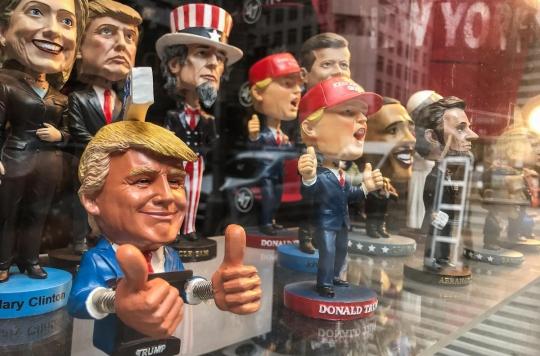The more the society is divided, the more citizens are likely to turn to divisive political figures, most often from the extreme right.

- The first round of the French presidential election will be held on Sunday April 10.
- Marine Le Pen and Eric Zemmour are now tied, with 14% of voting intentions each.
While the French presidential campaign is in full swing, a recent study published in the journal political psychology explains why some of us are more inclined to vote for politicians whose values and positions break with the dominant parties.
“Restore order”
Led by researchers from the University of Queensland (Australia), the study interviewed 486 English, 383 Australians and 396 Americans. The results suggest that the more the values of two “dominant” political parties in a country are opposed, the more the citizens are inclined to turn to politicians “willing to break the rules” and “to challenge elites and wealthy corporationsThese same people were also more likely to agree with claims that “politicians don’t care about ordinary citizens’ problems” and “that people no longer know who they can trust“.
“The study found that if people believed there was a breakdown in the fabric of society, they were more likely to elect an authoritarian figure to restore order, such as Donald Trump or Pauline Hanson. [à la tête du parti d’extrême droite en Australie] “, Explain in a press release Charlie R. Crimston, lead author of the study. “On the other hand, if there is a sense of lack of leadership in society, voters may be attracted to a progressive leader to unify and lead the country in a new direction, such as Bernie Sanders or Alexandria Ocasio-Cortez.“, continues the researcher.
Citizens of a fictitious society
To verify this postulate, Charlie Crimston’s team conducted another survey of 399 American citizens. Participants were asked to imagine that they were citizens of a fictional society called Orinthia, dominated by two political parties. The volunteers were then randomly divided into two separate groups.
Each of the groups watched a (different) video relating to the political situation in Orinthia. The first film showed an important moral and ideological consensus between the two main political parties, while the other showed on the contrary a strong division. The authors of the work found that participants who viewed the second video reported an increased need for a “strong” leader in Orinthia and were more likely to perceive higher levels of social disorder.
“Our research is the first to provide evidence of the causal links between perceived moral division in society and the desire to elect extreme leaders as a potential solution. (…) So we are seeing an increased desire to elect these extreme leaders, who it’s a safe bet will eventually seek to further divide us.“, concludes Charlie Crimston.
.















